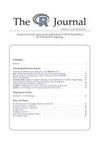使用新R包glmtoolbox的广义估计方程
IF 1.1
4区 计算机科学
Q3 COMPUTER SCIENCE, INTERDISCIPLINARY APPLICATIONS
引用次数: 0
摘要
本文介绍了一个非常全面的实现,可以在新的“R”包“glmtoolbox”中获得,这是一个非常灵活的统计工具,称为广义估计方程(GEE),它利用边际模型分析聚类相关数据。除了为工作相关矩阵提供比' R '中的其他GEE实现更多的内置结构外,这个GEE实现还允许用户:$(1)$计算感兴趣参数估计量的方差-协方差矩阵的几个估计;$(2)$计算若干准则以协助选择工作相关矩阵的结构;$(3)$比较嵌套模型,使用Wald检验和广义分数检验;(4)使用Pearson、deviance和mahalanobis型残差评估模型的拟合优度;$(5)$使用全局影响方法(即dfbeta统计量和库克距离)和局部影响方法进行敏感性分析;$(6)$使用几个标准来执行变量选择,使用混合逐步过程;$(7)$非线性拟合模型;$(8)$使用特定于观测值或特定于聚类的加权方法处理MAR而不是MCAR假设下的辍学型缺失数据。通过分析从纵向研究中获得的四个真实数据集,说明了这种GEE实现的能力。本文章由计算机程序翻译,如有差异,请以英文原文为准。
Generalized Estimating Equations using the new R package glmtoolbox
This paper introduces a very comprehensive implementation, available in the new `R` package `glmtoolbox`, of a very flexible statistical tool known as Generalized Estimating Equations (GEE), which analyzes cluster correlated data utilizing marginal models. As well as providing more built-in structures for the working correlation matrix than other GEE implementations in `R`, this GEE implementation also allows the user to: $(1)$ compute several estimates of the variance-covariance matrix of the estimators of the parameters of interest; $(2)$ compute several criteria to assist the selection of the structure for the working-correlation matrix; $(3)$ compare nested models using the Wald test as well as the generalized score test; $(4)$ assess the goodness-of-fit of the model using Pearson-, deviance- and Mahalanobis-type residuals; $(5)$ perform sensibility analysis using the global influence approach (that is, dfbeta statistic and Cook's distance) as well as the local influence approach; $(6)$ use several criteria to perform variable selection using a hybrid stepwise procedure; $(7)$ fit models with nonlinear predictors; $(8)$ handle dropout-type missing data under MAR rather than MCAR assumption by using observation-specific or cluster-specific weighted methods. The capabilities of this GEE implementation are illustrated by analyzing four real datasets obtained from longitudinal studies.
求助全文
通过发布文献求助,成功后即可免费获取论文全文。
去求助
来源期刊

R Journal
COMPUTER SCIENCE, INTERDISCIPLINARY APPLICATIONS-STATISTICS & PROBABILITY
CiteScore
2.70
自引率
0.00%
发文量
40
审稿时长
>12 weeks
期刊介绍:
The R Journal is the open access, refereed journal of the R project for statistical computing. It features short to medium length articles covering topics that should be of interest to users or developers of R.
The R Journal intends to reach a wide audience and have a thorough review process. Papers are expected to be reasonably short, clearly written, not too technical, and of course focused on R. Authors of refereed articles should take care to:
- put their contribution in context, in particular discuss related R functions or packages;
- explain the motivation for their contribution;
- provide code examples that are reproducible.
 求助内容:
求助内容: 应助结果提醒方式:
应助结果提醒方式:


